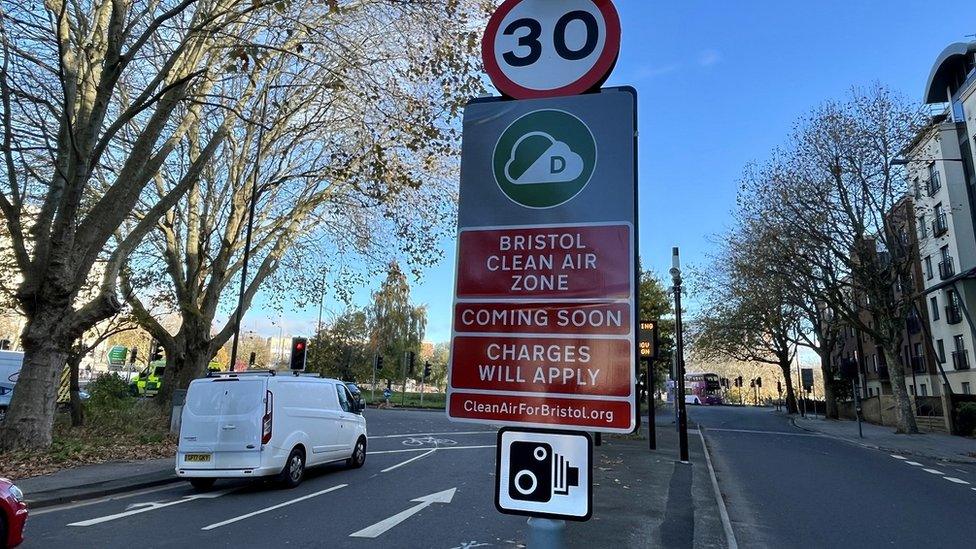Bath CAZ: Government confirms air quality has improved
- Published
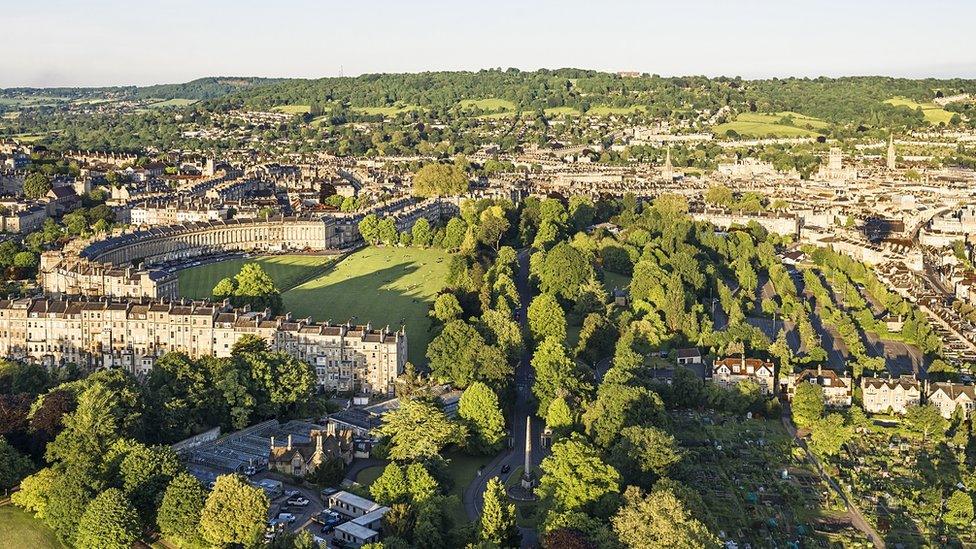
Bath was the first city outside London to introduce a Clean Air Zone
Air quality has improved since a city introduced a Clean Air Zone (CAZ), a new report has confirmed.
The government's Joint Air Quality Unit (JAQU) said that Bath's air pollution levels had dropped to within legal limits, following the launch of the CAZ in 2021.
The report confirms nitrogen dioxide concentrations had decreased by 22%.
It said during 2021, there were no breaches of the annual mean nitrogen dioxide limit.
However, the report added that the improvements may in part be attributed to a reduction in traffic during the early part of the year due to Covid restrictions.
Bath and North East Somerset Council (BANES) said its latest data for 2022 indicates that air quality is continuing to improve, with a 26% average reduction in pollution levels inside the zone compared with 2019.

Paul Barltrop, political editor, BBC West
Bath went early, and it was not easy - but there are quiet smiles on the faces of councillors now.
The government's own experts have confirmed what the council had already concluded: that the city's air is no longer illegally polluted.
Its geography, with narrow streets surrounded by steep hills, meant that toxic gases from vehicle exhausts had long been a problem.
Despite recent claims by some ministers of an anti-motorist attitude among councils, it was a government edict that forced Bath and other cities to act.
After much deliberation the council decided to exempt private cars; they believe they got it right.
And fears that polluting vehicles would make lengthy diversions through the suburbs to avoid the zone have proved unfounded: air is cleaner across all of Bath.
It has come at a price: many drivers choose to pay, others get fined. Last year it brought in £3.3m - which is then ploughed back into further improving Bath's air and transport.

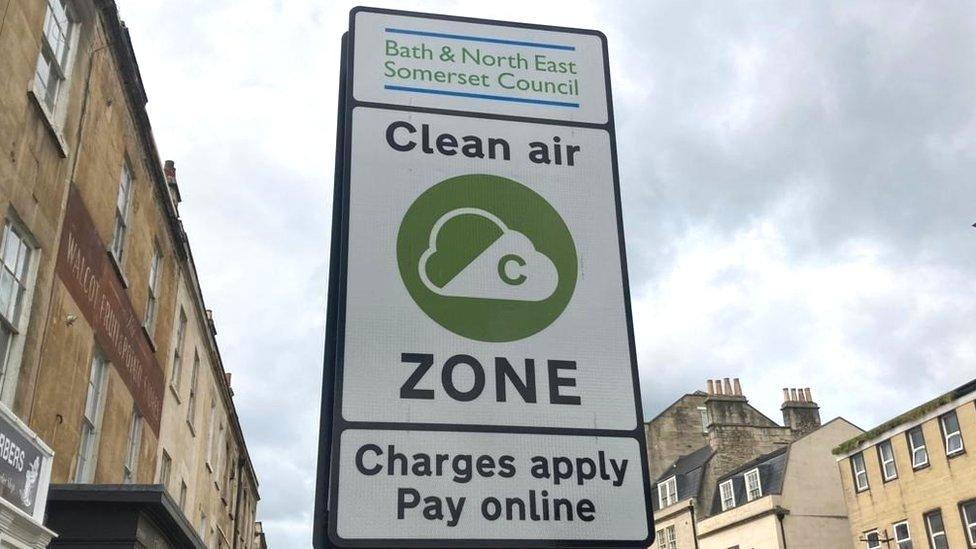
Bath's Clean Air Zone came into force in March 2021
BANES deputy leader, councillor Sarah Warren, said: "Whilst the report from government recognises data from 2021, the council's latest CAZ annual report assessing data from 2022 shows a continuing reduction in pollution levels and improvements in air quality.
"During 2022 annual mean nitrogen dioxide concentrations within the CAZ dropped by a further 7% compared with 2021, and a further 6% reduction is indicated across the wider area."
Bath's CAZ, the first outside London, was launched on 15 March 2021.
People driving a chargeable higher emission vehicle have to pay to drive in the zone but the charge does not apply to private cars or motorcycles.

Follow BBC West on Facebook, external, X, external and Instagram, external. Send your story ideas to: bristol@bbc.co.uk , external
Related topics
- Published25 August 2023
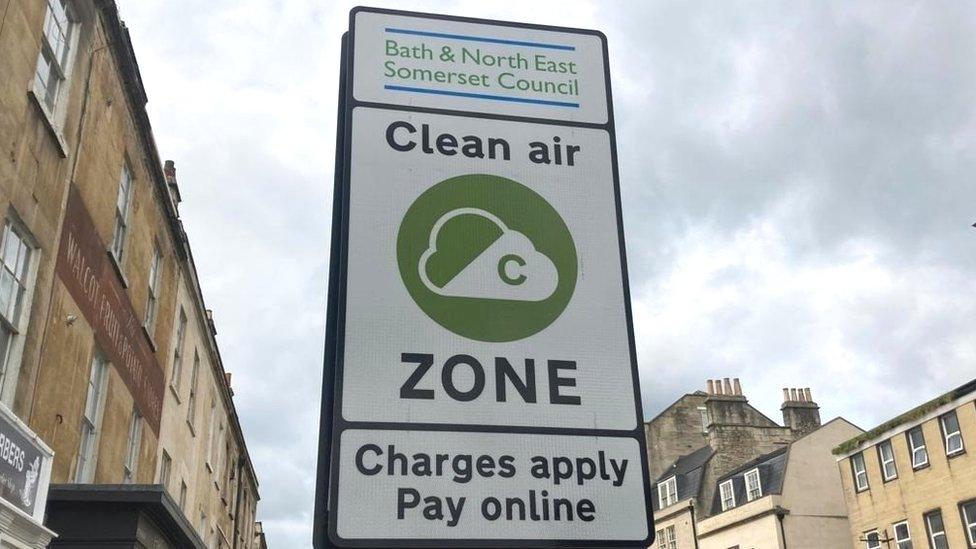
- Published5 September 2023

- Published26 September 2023
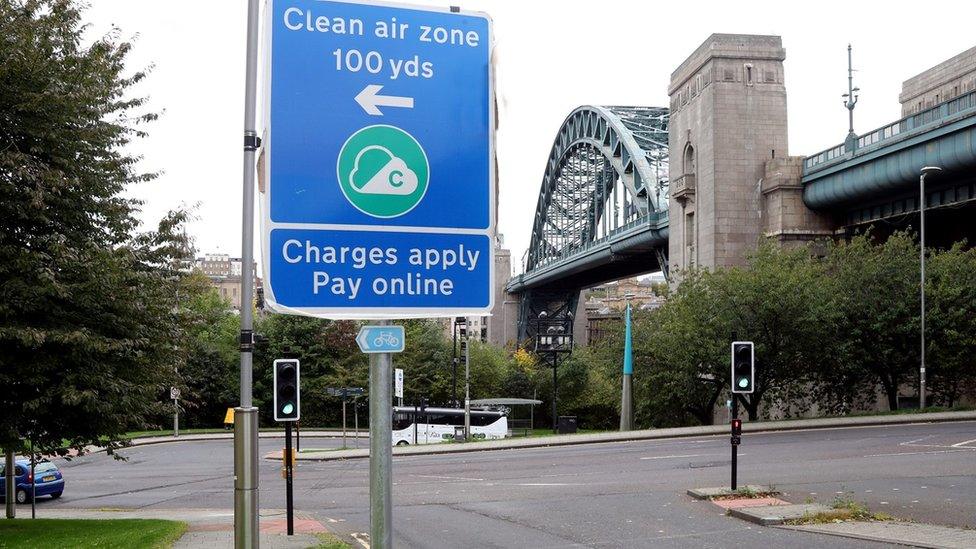
- Published17 August 2023
